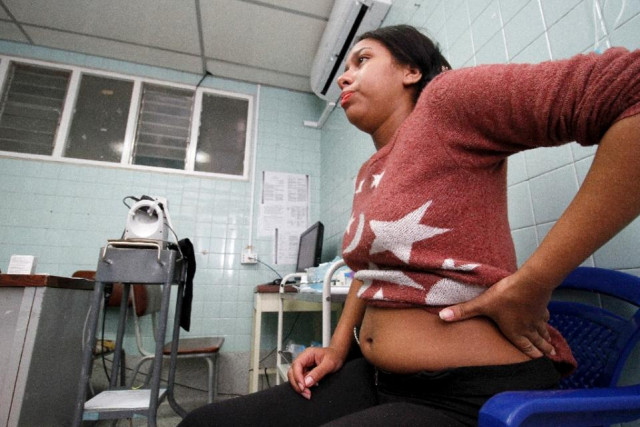Colombia has more than 2,000 Zika cases in pregnant women
The South American country now has 20,297 cases of Zika infection

Pregnant woman Angelica Prato, infected by the Zika virus, is attended at the Erasmo Meoz University Hospital in Cucuta, Colombia, on January 25, 2016. PHOTO: AFP
The National Health Institute reported that Colombia now has 20,297 cases of Zika infection, including 2,116 in pregnant women.
The latest numbers, reported in the institute's epidemiological bulletin, would make Colombia the second most affected country in the region, after Brazil.
Baby born in Hawaii with brain damage confirmed to have Zika infection
Although the mosquito-borne virus's symptoms are relatively mild, it is believed to be linked to a surge in cases of microcephaly, a devastating condition in which a baby is born with an abnormally small head and brain.
Microcephaly is an untreatable disease that can cause permanent damage to the child's motor and cognitive development.
The World Health Organization warned this week that the virus is "spreading explosively" in the Americas, with three million to four million cases expected this year.
Zika virus 'spreading explosively': WHO chief
Brazil has reported as many as 1.5 million cases of Zika infection. Since the outbreak was detected there last year, 3,718 cases of microcephaly have been reported, compared to an average 163 cases a year before that.
The National Health Institute said that 1,050 of Colombia's Zika infection cases were confirmed by laboratory tests, 17,115 by clinical exams, and 2,132 were suspected cases.
Women have been the most affected in Colombia, accounting for 63.6 per cent of the cases.
Top US researcher says Zika vaccine is years away
The government expects more than 600,000 people to become infected with the Zika virus in Colombia this year, and projects some 500 cases of microcephaly.
On Tuesday, Colombian authorities ordered hospitals in lower-lying areas to prepare for the spread of the disease, which is carried by the Aedes aegypti mosquito.
It also recommended that couples delay attempts to become pregnant for six to eight months.



















COMMENTS
Comments are moderated and generally will be posted if they are on-topic and not abusive.
For more information, please see our Comments FAQ